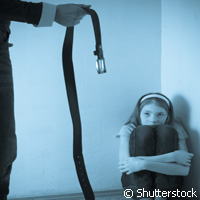Aggression normalised among children exposed to violence
An international team of researchers have conducted new research showing that the more children are exposed to violence, the more they think it is normal. The study, published in the journal Social Psychological and Personality Science, also found that in addition to this normalisation, children who find violent behaviour normal are more likely to become violent themselves. The team of researchers, from Germany, the Netherlands, Spain and the US, made these conclusions after conducting questionnaires with 777 Spanish children aged 8 to 12. The children were asked to complete two questionnaires six months apart about exposure to violence: this enabled the researchers to note if after witnessing or being a victim of violence, levels of aggression had risen or fallen half a year later. The results show that children who answered that they had witnessed violence in the first questionnaire had become more aggressive by the second questionnaire. This shows a delaying effect: the more time that had elapsed between witnessing violence, the more aggressive the children became. The same results were observed for victims of violence. Children who were victimised during the first phase of study were more likely to be aggressive six months later. Many previous studies have outlined how children exposed to violence tend to believe that it is an acceptable way of solving conflicts with others and that it is an effective way to get what you want. This research differs because it is the first to explore whether normative aggression beliefs influence the link between exposure to violence across several contexts such as at home, school, in the neighbourhood and on TV, and future aggression. 'Exposure to violence can also increase aggression regardless of whether it is at home, at school, or in the virtual world of TV, and regardless of whether the person is a witness or a victim,' says Izaskun Orue from the University of Deusto in Spain, lead researcher on the study. 'People exposed to a heavy diet of violence come to believe that aggression is a normal way to solve conflict and get what you want in life. These beliefs lower their inhibitions against aggression towards others.' The children were chosen from seven randomly selected schools in Biscay in Spain. The results also showed that variables such as the type of school (public or private), social class or gender, had little effect on the findings. The implications of this study are that children who are the victims of violence are highly likely to later become the perpetrators themselves. And for those who witness violence early in life, subsequent aggressive behaviour is also likely, regardless of whether they witnessed this violence at home, school, in the neighbourhood or via the media. The researchers conclude that when aggression is viewed as normal behaviour, inhibitions against behaving aggressively are reduced. Countering these normative aggression beliefs is outlined as a possible future direction for intervention research. By teaching children that aggression is not normal or acceptable, the message will pass on through different generations that violence is never the right means to an end.For more information, please visit: University of Deusto, Spain:http://www.deusto.es/Social Psychological and Personality Sciencehttp://spp.sagepub.com/
Countries
Germany, Spain, Netherlands, United States

